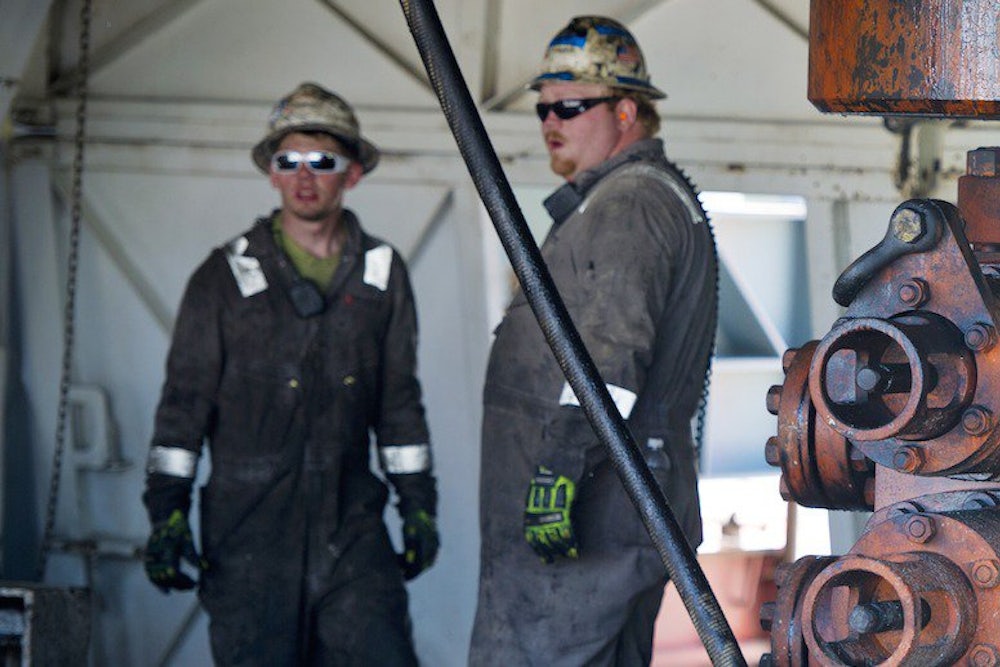Oil and gas drilling has been booming for a decade, and federal regulators are only just starting to catch up. On Friday, the Obama Administration announced regulations affecting hydraulic fracturing, or fracking, on federal land. Like most energy regulations, these rules are politically controversial even though they have a limited reach. They affect just 11 percent of the nation’s natural gas production and 5 percent of oil production.
Despite their small scope, the regulations suit conservative allegations that President Barack Obama is overzealous with environmental regulations. So they are charging ahead with attacks on the new rules. The American Petroleum Institute described these rules as a "duplicative layer of new federal regulation" on top of state regulations, while Republican senators already have a bill in the works to block the Department of Interior from carrying out the policy.
The industry, far from being under seige, has already won several key battles since the Department of Interior first introduced the draft rules in 2012. For example, Interior kept in place a proposal to let the industry disclose chemicals used in fracking on a self-regulated website, FracFocus, letting companies determine what are trade secrets. And, under the federal rule, the industry has no requirement to disclose these chemicals until 30 days after it has already drilled, which is little comfort for residents concerned about the effect of fracking on their groundwater.
Environmentalists still prevailed on a few points. The final rules are clearer about how companies should handle wastewater from fracking. There was little oversight before, with drillers storing their cocktail of chemicals in open-air pits in the ground. Now, Interior will require them to keep wastewater in covered storage tanks until permanent disposal. This prevents toxic chemicals from getting into the air and seeping into the ground.
Fracking's opaque process is only incrementally becoming more transparent, and these new regulations are no different. The federal government's approach has long been to let companies frack first and ask questions later.
